Song Itinerary Racism and Slavery in the USA
Oh, Let Me Fly
Anonymous
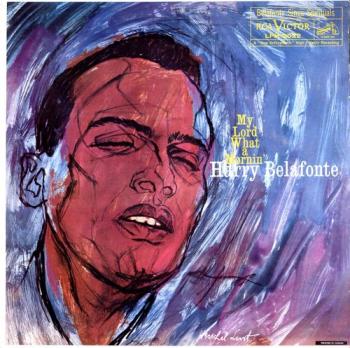
Way down yonder in the middle of the field
(Continues)
(Continues)
Contributed by Pluck 2025/12/3 - 20:04
Song Itineraries:
Racism and Slavery in the USA
Southern Exposure

DENUNCIA DEL SUD (1)
(Continues)
(Continues)
Contributed by Marcello Tagliabue 2025/12/3 - 19:23
Steal Away
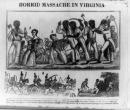
Steal Away - Harry Belafonte - 1960
Commovente ed accorata interpretazione di Harry Belafonte piena di tenero liricismo ["tender lyricism"] come si è espresso Langston Hughes nelle note di copertina dell’Album " My Lord What A Morning " del 1960 di cui il brano è la traccia n.11
Commovente ed accorata interpretazione di Harry Belafonte piena di tenero liricismo ["tender lyricism"] come si è espresso Langston Hughes nelle note di copertina dell’Album " My Lord What A Morning " del 1960 di cui il brano è la traccia n.11
Mmm-mmm, mmm-mmm-mmm-mmm-mmm-mmm-mmm [1]
(Continues)
(Continues)
Contributed by Pluck 2025/11/28 - 19:57
Wade in De Water

Simpatica interpretazione di questo famoso canto religioso da parte di questo gruppo di ragazzini di colore e non , il cui leader mostra di possedere una discreta personalità e disinvoltura.
A seguire la trascrizione di "Wade in The Water" nella versione dei " Cedarmont Kids" come da video:
Cedarmont Kids is a Christian company, starring kids who sing some great classic songs.
A seguire la trascrizione di "Wade in The Water" nella versione dei " Cedarmont Kids" come da video:
Cedarmont Kids is a Christian company, starring kids who sing some great classic songs.
WADE IN THE WATER
(Continues)
(Continues)
Contributed by Pluck 2025/11/27 - 19:10
Deep River
Anonymous

Lo spiritual tradizionale ” Deep River” puo’ essere annoverato fra i canti che appartengono alla “Underground Railroad” come: "Follow the Drinking Gourd" , "Wade the Water" , "Go Down Moses" ,"Swing Low Sweet Chariot", "Steal Away" e altri.
L’Autore dell’articolo allegato suggerisce infatti che il fiume Giordano, citato in Deep River, puo’ simboleggiare il fiume Ohio*,naturale confine divisorio fra gli stati schiavisti del Sud degli Stati Uniti e gli stati liberi del Nord e ultimo ostacolo da affrontare per raggiungere l’obiettivo finale della fuga , la liberta’.
English
Italiano
DEEP RIVER is a classic example of an African American “spiritual” – an immensely important genre of music born from the “plantation” and “sorrow” songs of the African American slaves in the Deep South in the 1600s, 1700s and 1800s. Like all spirituals, “Deep River” is a song of hope and longing, expressing... (Continues)
L’Autore dell’articolo allegato suggerisce infatti che il fiume Giordano, citato in Deep River, puo’ simboleggiare il fiume Ohio*,naturale confine divisorio fra gli stati schiavisti del Sud degli Stati Uniti e gli stati liberi del Nord e ultimo ostacolo da affrontare per raggiungere l’obiettivo finale della fuga , la liberta’.
English
Italiano
DEEP RIVER is a classic example of an African American “spiritual” – an immensely important genre of music born from the “plantation” and “sorrow” songs of the African American slaves in the Deep South in the 1600s, 1700s and 1800s. Like all spirituals, “Deep River” is a song of hope and longing, expressing... (Continues)
Deep river
(Continues)
(Continues)
Contributed by Pluck 2025/11/25 - 17:58
Song Itineraries:
Racism and Slavery in the USA
Il peggiore nemico del negro

Vorrei uno spin-off su Jimmy il Negro, personaggio di leggende e idolo delle masse.
Jebediah il Bianco 2025/11/12 - 11:47
Uncle Sam says
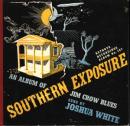
Josh White era andato a trovare suo fratello che si trovava in una base dell'esercito americano per l'addestramento, ed era rimasto scioccato dalla disparità di trattamento tra reclute nere e bianche. Parlò dell'esperienza con William Waring Cuney, un poeta dell'Harlem Renaissance, e insieme i due scrissero una tagliente critica di 12 battute.
DICE LO ZIO SAM
(Continues)
(Continues)
Contributed by Marcello Tagliabue 2025/11/8 - 17:01
Bad Housing Blues
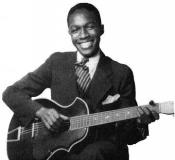
Dall'album 'Southern Exposures' (1941).
Negli anni Quaranta Josh White registrò una serie di canzoni di protesta razziale con temi legati ai diritti civili (tra cui, per esempio, "Free and Equal Blues", "Jim Crow Train" ecc). "Bad Housing Blues" è una canzone che protesta contro gli alloggi scadenti in cui gli afroamericani erano spesso costretti a vivere.
Negli anni Quaranta Josh White registrò una serie di canzoni di protesta razziale con temi legati ai diritti civili (tra cui, per esempio, "Free and Equal Blues", "Jim Crow Train" ecc). "Bad Housing Blues" è una canzone che protesta contro gli alloggi scadenti in cui gli afroamericani erano spesso costretti a vivere.
I woke up this morning, rainwater in my bed
(Continues)
(Continues)
Contributed by Marcello Tagliabue 2025/11/6 - 09:36
Song Itineraries:
Racism and Slavery in the USA
Birmingham Blues
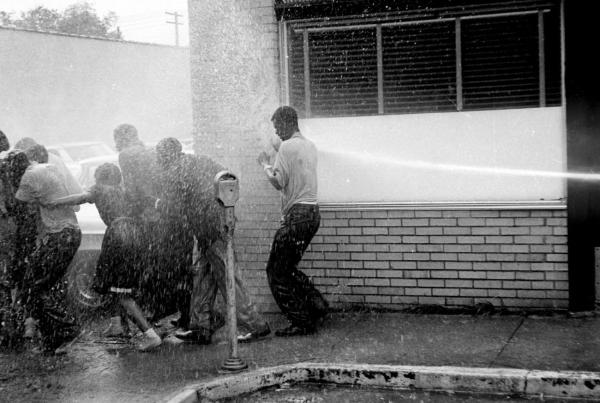
Dall'album 'On Campus', Chicago, 1963
Hooker recorded "Birmingham Blues" in response to events which occurred in Birmingham during the series of civil rights protest demonstrations which took place in the spring of 1963. Known as the Birmingham Campaign, the protests included marches, lunch counter sit-ins, kneel-ins at white churches, and boycotts of local merchants. The protests and the clashes between the white authorities and black protestors were widely publicized by the news media, and images of dogs and powerful high-pressure fire hoses being used to subdue protestors garnered them worldwide sympathy.
'Social (racial) protest in the blues – Steve Hoffman Music Forums'
'Social (racial) protest in the blues – Steve Hoffman Music Forums'
I ain't goin' down Birmingham by myself
(Continues)
(Continues)
Contributed by Marcello Tagliabue 2025/11/4 - 23:33
Song Itineraries:
Racism and Slavery in the USA
Slavery Time
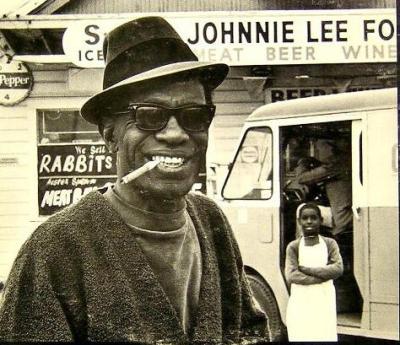
Registrato a Houston, Texas, il 18 dicembre 1967, Arhoolie Records.
Questa registrazione è presente nel grande album "Texas Blues" di Hopkins. Robert Santelli, nel suo libro The Best of the Blues: The 101 Essential Albums, descrive la canzone come "una rappresentazione toccante scritta sull'epoca dell'oppressione e sulla ricerca della libertà dei neri".
Hopkins registrò "Slavery Time" il 18 dicembre 1967 insieme ad altre due canzoni di protesta: "Tom Moore Blues" e "Bud Russell Blues". Hopkins era uno dei più grandi improvvisatori del blues e, secondo le note di copertina dell'album "Texas Blues", compose "Slavery Time" subito dopo aver cantato di Tom Moore e Bud Russell.
A un certo punto, Hopkins canta "Sono così contento che non sia più tempo di schiavitù". Ma quel verso era quasi certamente pronunciato con sarcasmo, poiché il verso precedente fa riferimento alla semi-schiavitù della... (Continues)
Questa registrazione è presente nel grande album "Texas Blues" di Hopkins. Robert Santelli, nel suo libro The Best of the Blues: The 101 Essential Albums, descrive la canzone come "una rappresentazione toccante scritta sull'epoca dell'oppressione e sulla ricerca della libertà dei neri".
Hopkins registrò "Slavery Time" il 18 dicembre 1967 insieme ad altre due canzoni di protesta: "Tom Moore Blues" e "Bud Russell Blues". Hopkins era uno dei più grandi improvvisatori del blues e, secondo le note di copertina dell'album "Texas Blues", compose "Slavery Time" subito dopo aver cantato di Tom Moore e Bud Russell.
A un certo punto, Hopkins canta "Sono così contento che non sia più tempo di schiavitù". Ma quel verso era quasi certamente pronunciato con sarcasmo, poiché il verso precedente fa riferimento alla semi-schiavitù della... (Continues)
Sad when you′re sick at home alone
(Continues)
(Continues)
Contributed by Marcello Tagliabue 2025/11/3 - 21:10
Song Itineraries:
Racism and Slavery in the USA
Jim Crow Blues

Registrato a Chicago, gennaio 1927.
Cow Cow Davenport (vocal e pianoforte), B.T. Wingfield (cornetta)
Cow Cow Davenport (vocal e pianoforte), B.T. Wingfield (cornetta)
Sono stanco di tutto questo razzismo, lascerò questa città razzista,
(Continues)
(Continues)
Contributed by Marcello Tagliabue 2025/10/24 - 22:14
Homeless Blues
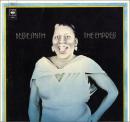
BLUES DEL SENZATETTO
(Continues)
(Continues)
Contributed by Marcello Tagliabue 2025/10/23 - 16:09
Mississippi County Farm Blues
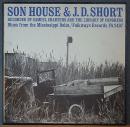
Vorrei essere un bambino tra le braccia di mia mamma, (Continues)
2025/10/20 - 22:08
Mississippi County Farm Blues
Giù al Sud, quando fai qualcosa di sbagliato,
(Continues)
(Continues)
Contributed by Marcello Tagliabue 2025/10/20 - 21:09
Parchman Farm Blues

Stamattina il giudice mi ha risparmiato la vita, giù alla Parchman Farm,
(Continues)
(Continues)
Contributed by Marcello Tagliabue 2025/10/13 - 19:59
Social Unrest
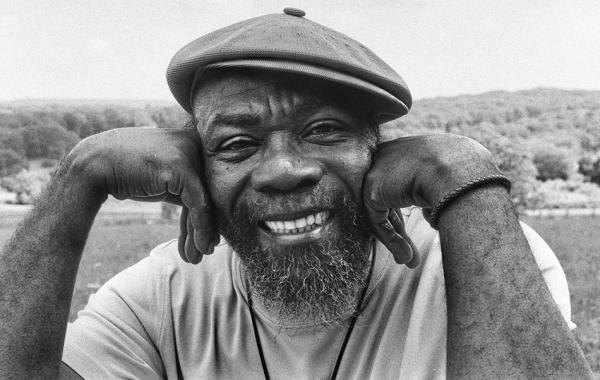
[2022]
Parole e musica di Clinton Fearon
Il testo da YT.
Parole e musica di Clinton Fearon
Il testo da YT.
There’s a social unrest hitting everywhere
(Continues)
(Continues)
2025/10/12 - 20:57
Song Itineraries:
Racism and Slavery in the USA
Rooted

(2020)
feat. Ester Dean
feat. Ester Dean
Better than rooted now
(Continues)
(Continues)
2025/10/2 - 18:59
Song Itineraries:
Racism and Slavery in the USA
Message II (Survival)

(1982)
Uscita nello stesso anno della famosissima The Message, questa seconda parte è incentrata sull'esperienza della galera, comune a tanti giovani afroamericani.
Uscita nello stesso anno della famosissima The Message, questa seconda parte è incentrata sull'esperienza della galera, comune a tanti giovani afroamericani.
Survival, only the strong can survive
(Continues)
(Continues)
2025/9/27 - 14:59
Song Itineraries:
From World Jails, Racism and Slavery in the USA
Mississippi County Farm Blues

Una potenza impressionante. Un Titano del Blues e non solo.
alfonso 2025/8/27 - 12:50
Nappy Heads

1994
Blunted on Reality
The song talks about the struggles faced by black people and their determination to break free from oppression and racism.
Blunted on Reality
The song talks about the struggles faced by black people and their determination to break free from oppression and racism.
Why am I trapped in a cage? (Continues)
Contributed by Dq82 2025/7/25 - 16:07
Song Itineraries:
Racism and Slavery in the USA
Wildfires
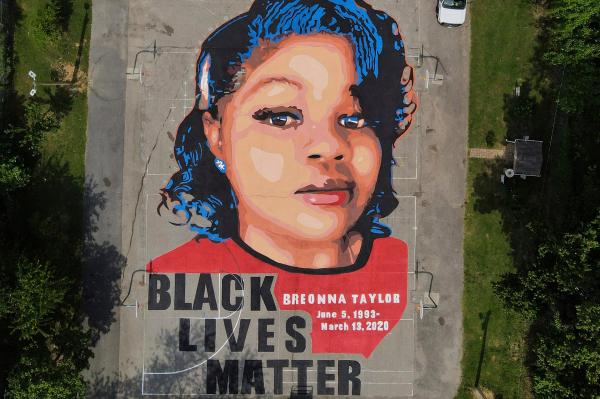
(2020)
Album: Untitled (Black Is)
This refers to the killing of Breonna Taylor as she slept at home by police officers in the US. The song Wildfires, much like most of SAULT’s work focuses on black-centric issues, such as the 2020 BLM Protests
Album: Untitled (Black Is)
This refers to the killing of Breonna Taylor as she slept at home by police officers in the US. The song Wildfires, much like most of SAULT’s work focuses on black-centric issues, such as the 2020 BLM Protests
Thief in the night
(Continues)
(Continues)
2025/7/20 - 00:43
Song Itineraries:
Racism and Slavery in the USA
B.L.M.

Album: Encore (2019)
In the same way The Specials’ early classics such as ‘Concrete Jungle’, ‘Doesn’t Make It Alright’ and ‘Ghost Town’ delved into issues the likes of racism, right-wing violence and economic recession on the cusp of the 80s, Encore targets contemporary topics with aplomb. Among these highlights are Lynval Golding’s hard-hitting, immigration-related ‘BLM’ (aka ‘Black Lives Matter’).
“We’re Still Angry”: The Specials’ Terry Hall Talks ‘Encore’
“We’re Still Angry”: The Specials’ Terry Hall Talks ‘Encore’
Lynval Golding, born 1951
(Continues)
(Continues)
2025/6/26 - 23:06
Song Itineraries:
Racism and Slavery in the USA
Everyday People
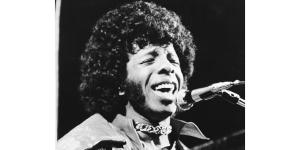
È morto a 82 anni Sly Stone.
È morto a 82 anni il musicista statunitense Sly Stone, a capo degli Sly and the Family Stone - Il Post
2025/6/9 - 23:34
Blue Spirit Blues
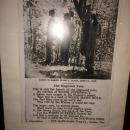
BLUES DEGLI SPIRITI AZZURRI
(Continues)
(Continues)
Contributed by Marcello Tagliabue 2025/5/20 - 11:37
Everybody Cryin' About Vietnam

Vietnam Blues by Cassandra Wilson
on Martin Scorsese Presents the Blues: The Soul of a Man (2003)
on Martin Scorsese Presents the Blues: The Soul of a Man (2003)
Cassandra Wilson is an American jazz singer, songwriter, and producer from Jackson, Mississippi. She has been described by critic Gary Giddins as "a singer blessed with an unmistakable timbre and attack [who has] expanded the playing field" by incorporating blues, country, and folk music into her work.
She has won numerous awards, including two Grammys, and was named "America's Best Singer" by Time magazine in 2001.
Wikipedia
She has won numerous awards, including two Grammys, and was named "America's Best Singer" by Time magazine in 2001.
Wikipedia
VIETNAM BLUES
(Continues)
(Continues)
Contributed by Pluck 2025/4/3 - 11:15
Compositor del Año

(2020)
“COMPOSITOR DEL AÑO” se trata de una canción de Bad Bunny lanzada sin un previo aviso por su cuenta de SoundCloud.
Benito comienza la canción relatando su superioridad dentro de la industria musical, hasta que sufre un cambio de temática para comenzar a protestar sobre diversos hechos ocurridos en el mundo. Durante el resto de la canción Bad Bunny afronta temas como el racismo, el gobierno de Puerto Rico y la religión.
El titulo y parte final de la canción se debe a las criticas hacia Bad Bunny tras recibir el premio a Compositor del Año en los Premios ASCAP. Partiendo de esto, Benito deja en claro que pone por encima las problemáticas mundiales que su premio.
“COMPOSITOR DEL AÑO” se trata de una canción de Bad Bunny lanzada sin un previo aviso por su cuenta de SoundCloud.
Benito comienza la canción relatando su superioridad dentro de la industria musical, hasta que sufre un cambio de temática para comenzar a protestar sobre diversos hechos ocurridos en el mundo. Durante el resto de la canción Bad Bunny afronta temas como el racismo, el gobierno de Puerto Rico y la religión.
El titulo y parte final de la canción se debe a las criticas hacia Bad Bunny tras recibir el premio a Compositor del Año en los Premios ASCAP. Partiendo de esto, Benito deja en claro que pone por encima las problemáticas mundiales que su premio.
Contributed by Valentina 2025/2/21 - 22:48
Song Itineraries:
Racism and Slavery in the USA
Sometimes I Feel Like a Motherless Child
Anonymous

Album: " Louis and The Good Book "
Louis Armstrong with the Sy Oliver Choir and The All Stars - 1958
Writers: Sy Oliver & Traditional
Louis Armstrong with the Sy Oliver Choir and The All Stars - 1958
Writers: Sy Oliver & Traditional
Sometimes I Feel Like A Motherless Child
(Continues)
(Continues)
Contributed by Pluck 2025/2/9 - 20:01
Man With No Name

In realtà "White Jesus Black Problems" andrebbe contribuito per intero sulla CCG/AWS...
Xavier Dphrepaulezz, in arte Fantastic Negrito, ha scritto un concept album dove la descrizione della realtà attuale si incrocia con la storia di una sua antenata, una serva di origine scozzese di nome Elizabeth Gallimore che nella Virginia di metà '700 si innamora e convive con uno schiavo negro, il cui nome è rimasto sconosciuto (Fantastic Negrito lo battezza pertanto Grandfather Courage). Per questo la coppia venne perseguita dalla giustizia, che non ammetteva i matrimoni misti... Non si sa cosa abbiano passato, ma ebbero comunque una discendenza, fino allo Xavier dall'impronunciabile cognome.
Fantastic Negrito ha dedicato alla storia anche un video di 40' ed una versione acustica dell'album dedicata proprio al suo sconosciuto avo, "Grandfather Courage".
Cercherò nei prossimi giorni di selezionare le canzoni migliori e più inerenti alle CCG/AWS.
Grandissimo artista, bellissima storia e bellissima musica.
Xavier Dphrepaulezz, in arte Fantastic Negrito, ha scritto un concept album dove la descrizione della realtà attuale si incrocia con la storia di una sua antenata, una serva di origine scozzese di nome Elizabeth Gallimore che nella Virginia di metà '700 si innamora e convive con uno schiavo negro, il cui nome è rimasto sconosciuto (Fantastic Negrito lo battezza pertanto Grandfather Courage). Per questo la coppia venne perseguita dalla giustizia, che non ammetteva i matrimoni misti... Non si sa cosa abbiano passato, ma ebbero comunque una discendenza, fino allo Xavier dall'impronunciabile cognome.
Fantastic Negrito ha dedicato alla storia anche un video di 40' ed una versione acustica dell'album dedicata proprio al suo sconosciuto avo, "Grandfather Courage".
Cercherò nei prossimi giorni di selezionare le canzoni migliori e più inerenti alle CCG/AWS.
Grandissimo artista, bellissima storia e bellissima musica.
2025/2/7 - 08:43
Letter to the President
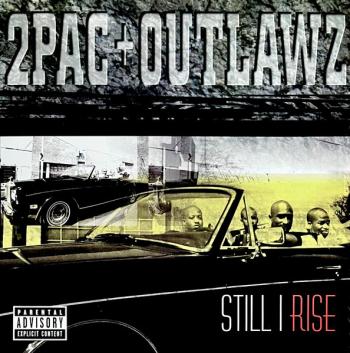
Album: Still I Rise (1999)
This angry tirade was from the 2Pac (Tupac Shakur) & The Outlawz 1999 album, Still I Rise. It was 2Pac’s third posthumous album which was released.
This song is a no holds barred lyrical attack on then President Bill Clinton, attacking his ineffectiveness in helping poverty stricken black communities. As far as protest songs go, it is pure anger, and it points to the fact that if the situation goes unchecked things will just keep getting worse.
10 Protest Songs About the Presidents of the USA – The Ongoing History of Protest Music
This angry tirade was from the 2Pac (Tupac Shakur) & The Outlawz 1999 album, Still I Rise. It was 2Pac’s third posthumous album which was released.
This song is a no holds barred lyrical attack on then President Bill Clinton, attacking his ineffectiveness in helping poverty stricken black communities. As far as protest songs go, it is pure anger, and it points to the fact that if the situation goes unchecked things will just keep getting worse.
10 Protest Songs About the Presidents of the USA – The Ongoing History of Protest Music
[Intro: E.D.I Mean & 2Pac]
(Continues)
(Continues)
2025/1/23 - 18:14
Song Itineraries:
Racism and Slavery in the USA
Nat Turner / The Gainin' Ground / Virginia 1831
Anonymous
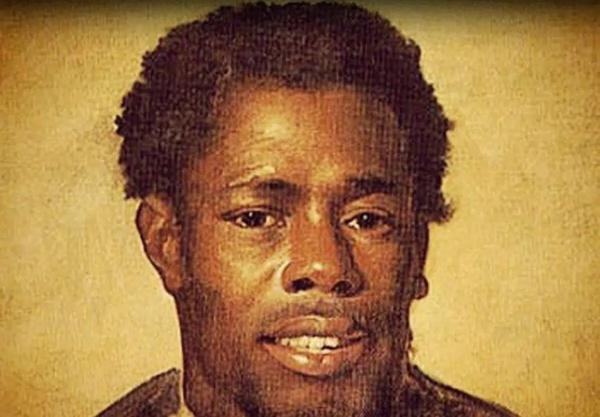
With the tightening of all restrictions on them (the slaves) after the rebellion, any singing about Nat Turner had to be well disguised .A song about him has survived, in which there was humorous satire on the masters,who allowed it as kings once allowed jokes on themselves by court fools and jesters, mixed with a pun on Nat Turner’s name and veiled references to revolution and change.
- First discovered as "The Gainin’ Ground" in Pete Seeger Where Have All the Flowers Gone pg. 236
- later discovered it in John Greenway American Folksongs of Protest pg. 92-93
-and Russell Ames, The Story of American Folk Song, 1955, p.151-152. Ames contributes an additional verse in Story of American Folksong, p. 151. It appears with the heading “Virginia 1831” below the three main verses in the lyrics.
all three attribute discovery of the song to Lawrence Gellert
This is confirmed by Gellert, published... (Continues)
- First discovered as "The Gainin’ Ground" in Pete Seeger Where Have All the Flowers Gone pg. 236
- later discovered it in John Greenway American Folksongs of Protest pg. 92-93
-and Russell Ames, The Story of American Folk Song, 1955, p.151-152. Ames contributes an additional verse in Story of American Folksong, p. 151. It appears with the heading “Virginia 1831” below the three main verses in the lyrics.
all three attribute discovery of the song to Lawrence Gellert
This is confirmed by Gellert, published... (Continues)
You mought be rich as cream,
(Continues)
(Continues)
Contributed by Dq82 2024/12/6 - 18:09
Song Itineraries:
Racism and Slavery in the USA
Notes From Underground
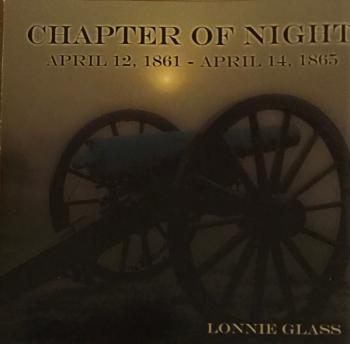
2010
Chapter Of Night
Chapter Of Night is a retrospective of the "Great Divide" known as The Civil War which took place in America between April 12, 1861 and April 14, 1865.
The War pitted the Northern Industrial society with its crowded immigrant poulations stretching the boundaries westward into new territories and the static Southern Aggrarian life of Plantations and slave labour. It became clear that the anathema of Slavery could not continue.
Two worlds colliding with a winner take all outcome.
The South had 18,000 factories to the North's 100,000. The population of The South was 10 million, 3 million which were slaves.
This CD does not villify the vanquished nor praise the victor. It merely tells stories of the struggles and courage of this most terrible tragedy.
It brings into sharp focus the need for critical thinking in order to avoid history's mistakes and prevent the repeat... (Continues)
Chapter Of Night
Chapter Of Night is a retrospective of the "Great Divide" known as The Civil War which took place in America between April 12, 1861 and April 14, 1865.
The War pitted the Northern Industrial society with its crowded immigrant poulations stretching the boundaries westward into new territories and the static Southern Aggrarian life of Plantations and slave labour. It became clear that the anathema of Slavery could not continue.
Two worlds colliding with a winner take all outcome.
The South had 18,000 factories to the North's 100,000. The population of The South was 10 million, 3 million which were slaves.
This CD does not villify the vanquished nor praise the victor. It merely tells stories of the struggles and courage of this most terrible tragedy.
It brings into sharp focus the need for critical thinking in order to avoid history's mistakes and prevent the repeat... (Continues)
for 20 long years been tied to a whippin' post (Continues)
Contributed by Dq82 2024/12/6 - 17:31
Song Itineraries:
Racism and Slavery in the USA
Old Man Brown

2010
Chapter Of Night
Chapter Of Night is a retrospective of the "Great Divide" known as The Civil War which took place in America between April 12, 1861 and April 14, 1865.
The War pitted the Northern Industrial society with its crowded immigrant poulations stretching the boundaries westward into new territories and the static Southern Aggrarian life of Plantations and slave labour. It became clear that the anathema of Slavery could not continue.
Two worlds colliding with a winner take all outcome.
The South had 18,000 factories to the North's 100,000. The population of The South was 10 million, 3 million which were slaves.
This CD does not villify the vanquished nor praise the victor. It merely tells stories of the struggles and courage of this most terrible tragedy.
It brings into sharp focus the need for critical thinking in order to avoid history's mistakes and prevent the repeat... (Continues)
Chapter Of Night
Chapter Of Night is a retrospective of the "Great Divide" known as The Civil War which took place in America between April 12, 1861 and April 14, 1865.
The War pitted the Northern Industrial society with its crowded immigrant poulations stretching the boundaries westward into new territories and the static Southern Aggrarian life of Plantations and slave labour. It became clear that the anathema of Slavery could not continue.
Two worlds colliding with a winner take all outcome.
The South had 18,000 factories to the North's 100,000. The population of The South was 10 million, 3 million which were slaves.
This CD does not villify the vanquished nor praise the victor. It merely tells stories of the struggles and courage of this most terrible tragedy.
It brings into sharp focus the need for critical thinking in order to avoid history's mistakes and prevent the repeat... (Continues)
His conscience was a searing (Continues)
Contributed by Dq82 2024/12/6 - 17:27
Song Itineraries:
Racism and Slavery in the USA
×
![]()


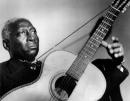


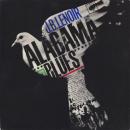
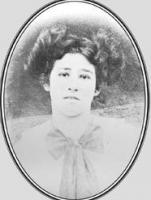
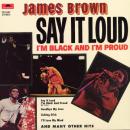
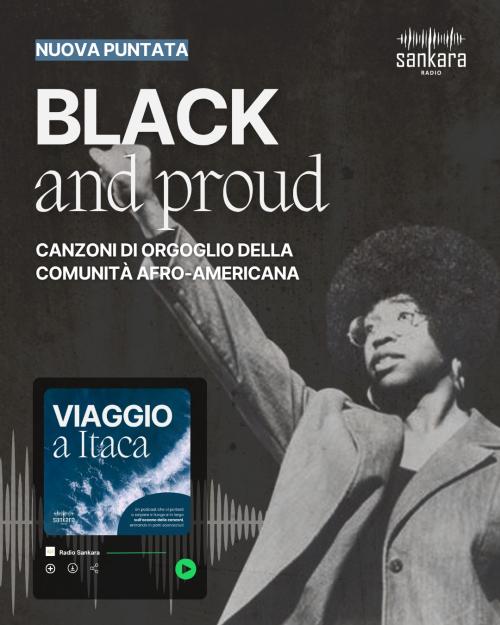

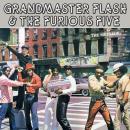
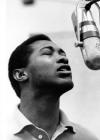





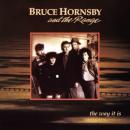
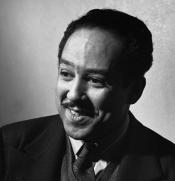
Anche questo brano puo’ essere considerato una canzone della "Underground Railroad" per la possibile interpretazione in codice di alcuni suoi versi a partire dal titolo che esprime il desiderio di fuggire da una opprimente realta’ e raggiungere al piu’ presto la Terra Promessa che potrebbe riferirsi al Canada o comunque agli stati liberi del Nord.
A seguire la gioiosa ed intensa interpretazione di Harry Belafonte traccia n.8 dell'imprescindibile album di Spirituals : " My Lord What A Morning" del 1960 con note di copertina di Langston Hughes.